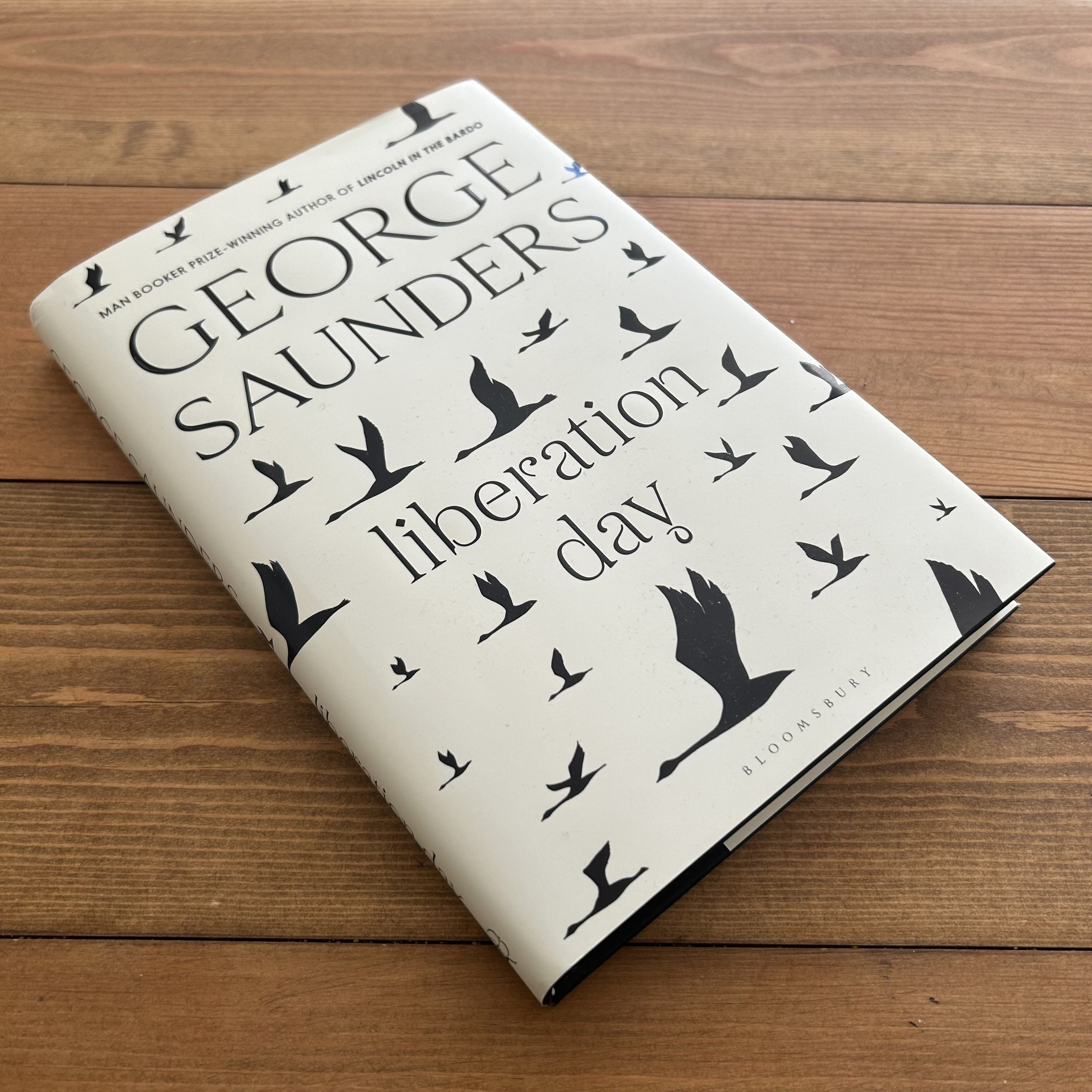Liberation Day (2022)
Why this one?
Saunders’ Lincoln in the Bardo won the 2017 Booker Prize, and I absolutely loved it. In fact, it ranked rather highly on my all time Booker winners ranking. As yet, I haven’t read any more of his work, so I thought I’d check out this new release collection of short stories.
George Saunders (1958- ; active 1986- ) was born in Amarillo, Texas, USA. He grew up in Oak Forest, Illinois, near Chicago. His first degree was, unusually, a BS in geophysical engineering from Colorado School of Mines, though he took an MA in Creative Writing at Syracuse University in 1988, where he met his wife Paula Redick.
He began writing short stories, with his first published in 1986. His first collection CivilWarLand in Bad Decline wasn't published until 1996. In between his MA and this first book, he worked as a technical writer and geophysical engineer, while continuing to publish short stories. He has subsequently published three further collections of short stories, edited an anthology called Fakes, and written extensively for the likes of The New Yorker, The Guardian, Harper's and GQ. Having previously said he wouldn't write a novel, Lincoln in the Bardo is thusfar his only example of the form (though he has written several novellas).
He has taught an MFA class at Syracuse for over twenty years, and in 2021 published A Swim in a Pond in the Rain, a "literary master class" based on his classes on the art of the short story form, focusing on four Russian masters.
Thoughts, etc.
For the first time on here I’m tackling a collection of short stories. Liberation Day contains nine of them, with no immediately obvious uniting theme. They move between realist character studies, packed with humour and insight, and much darker mini-dystopias.
The opening ‘title track’ is its longest, and perhaps strangest. In a near-future version of our world, its main characters, we eventually learn, have been robbed of their agency and memories, recast as marionettes in elaborate puppet shows for their rich masters. Its themes do seem to recur in the later dystopian stories, including ‘Ghoul’, where a subset of society has been condemned to a strange underground existence, possibly due to a long-forgotten disaster above ground. Its characters are forced to inform on and punish each other, and have, via generational shift in this case, no recollection of a ‘normal’ existence. And in ‘Elliot Spencer’, memory-wiping recurs again, as former convicts and vagrants are reprogrammed to act as pawns in a version of our own present-day Culture Wars.
I very much enjoyed this thread in the collection, with each of these stories throwing you headlong into a strange yet oddly familiar world. They reminded me a lot of some of Kazuo Ishiguro’s novels - his recent Klara and the Sun, for example, could fit in very neatly stylistically with these stories. They’re also somewhat oblique but pleasing metaphors for the state of the world in 2022: dehumanization, increasing division between the privileged and the oppressed. and an rapidly accelerating shift in the definition of what constitutes ‘normality’.
Elsewhere I enjoyed the short and sweet ‘Sparrow’, which feels like gentle mockery of those who live their lives in the language of cliche, but ends up (I think) being a bit of a minor celebration of humble normality, and the hilarious “The Mom of Bold Action’. A few of the others have slipped a little from my memory (i’m catching up on the blog - read this one about a month ago I think!) but there were enough standouts to make me want to dig even deeper into Saunders’ output.
Score
8
Hard to score a short story collection in the same way as the novels I usually cover, but this was a good solid read, if no Lincoln in the Bardo. The general consensus seems to be that this is his weakest collection to date, so I’m particularly exciting to
Next up
Back to the Women’s Prize read-through, with 2012 winner The Song of Achilles.


